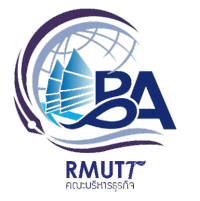THE SECOND ORDER CONFIRMATORY FACTOR ANALYSIS FOR KNOWLEDGE MANAGEMENT IN SMALL AND MEDIUM ENTERPRISES IN NAKHON PATHOM PROVINCE
Keywords:
Second Order Confirmatory Factor Analysis, Knowledge Management, Small and Medium EnterprisesAbstract
This research article aimed at investigating second order confirmatory factor analysis for knowledge management in small and medium enterprises in Nakhon Pathom Province. The samples were 376 small and medium entrepreneurs. The convenience sampling method was employed to collect the data and the data collection used questionnaires. The study result indicated that knowledge management in small and medium enterprises in Nakhon Pathom Province was comprised with knowledge exchange, knowledge storage, and knowledge utilization. In addition, knowledge management in small and medium enterprises in Nakhon Pathom Province was also statistically significant. The research result can contribute the guideline for the enterprise to develop their knowledge management. Also, the future research was also suggested.
References
Bunyakit, et al. (2005). Knowledge management from theory to practice. Bangkok: Se-Education.
Chareonwongsak, K. (2008). Learning: Use information like winners. Bangkok: Success Media Publisher.
Information and Communication Information Group Nakhon Pathom Provincial Office (2016). Briefings of Nakhon Pathom Province. Retrieved From http://www.nakhonpathom.go.th/files/com_news_describe/2016-06_abd0f2a5f6240e7.pdf.
Inchan, S. & Inchan, R. (2018). Accounting hiring and weakeness of financial strength of small and medium enterprises: a case study of Nakhon Pathom Province. Journal of Management Science, Nakhon Pathom Rajabhat University. 5(1), 143-151.
Kanchanaburi Chamber of Commerce. (2016). Information of SMEs. Retrieved From http://kanchamber.com/wizContent.asp?wizConID=384&txtmMenu_ID=7.
Keyser, R. L. (2004). Assessing the relationship between knowledge management and plant performance at the Tennessee Valley Authority. (Doctoral dissertation, The University of Alabama in Huntsville).
Lorsuwanrat, T. (2009). Knowledge Organization: From Concept to Practice. (4th edition). Bangkok: Zat Printing Printing.
Marquardt, M.J. (2011). Building the learning organization: Achieving strategic advantage through a commitment to learning (3rd ed.). Boston: Nicholas Brealey.
Napao, B. (2013). Competency in accordance with international education standards for accounting professionals and work efficiency: a case study of SMEs business accountants in Nonthaburi province. Journal of Business Administration Association of Higher Education Institutions of Thailand, 2(2), 1-9.
Panich, W. (2005). Knowledge management and Thai public administration. Bangkok: Institute for Knowledge Management for Society.
Revenue Department (2017). Characteristics of SMEs. Retrieved From http://www.rd.go.th/publish/38056.0.html.
Runcharoen, T. (2007). Professionalism in Educational Management and Management of Educational Reformation Era. Bangkok: Sorghum.
Turban, E., & Aronson, J. E. (2004). Information technology for management. Hoboken, NJ: John Wiley and Son.
Viriyapinit, M. (2011). Learning organization and knowledge management. Bangkok: Song Siam Publishing.
Wichianpanya, P. (2004). Knowledge management: fundamentals and applications. Bangkok: Export Publisher.
Wipawin, N. (2004). Knowledge Management and Knowledge Base. Bangkok: SR Printing.
Yodnoppaklao, N. (2005). Knowledge management, Khon Kaen University, Ruam Phaet Hospital, Mueang District, Maha Sarakham Province. (Master’s thesis, Mahasarakham University).









